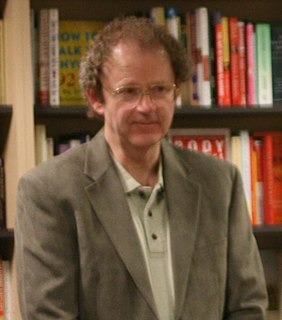A Quote by Aldous Huxley
The deepest sin against the human mind is to believe things without evidence.
Related Quotes
God has decided the rules of life, whereby you don't trespass on anybody else's rights, and sin is something that upsets the balance of things. There are three types of sin: sin against yourself; sin against other people; and sin against God. People often sin against themselves and others and misbehave with God, too.
For a Man cannot believe a Miracle without relying upon Sense, nor Transubstantiation without renouncing it. So that never were any two things so ill coupled together as the Doctrine of Christianity and that of Transubstantiation, because they draw several ways, and are ready to strangle one another: For the main Evidence of the Christian Doctrine, which is Miracles, is resolved into the certainty of Sense, but this Evidence is clear and point blank against Transubstantiation.
Every one of our sinful actions has a suicidal power on the faculties that put that action forth. When you sin with the mind, that sin shrivels the rationality. When you sin with the heart or the emotions, that sin shrivels the emotions. When you sin with the will, that sin destroys and dissolves your willpower and your self-control. Sin is the suicidal action of the self against itself. Sin destroys freedom because sin is an enslaving power.
But what, after all, is faith? It is a state of mind that leads people to believe something - it doesn't matter what - in the total absence of supporting evidence. If there were good supporting evidence then faith would be superfluous, for the evidence would compel us to believe it anyway. It is this that makes the often-parroted claim that 'evolution itself is a matter of faith' so silly. People believe in evolution not because they arbitrarily want to believe it but because of overwhelming, publicly available evidence.
If you expect the worst from a person, you can't ever be disappointed... The pessimist takes a sort of gloomy pleasure in observing the depths to which human behaviour can sink. The more sin he sees, the more his belief in Original Sin is confirmed. Everyone likes to have his deepest convictions confirmed; that is one of the most abiding of human satisfaction.
Knowledge signifies things known. Where there are no things known, there is no knowledge. Where there are no things to be known, there can be no knowledge. We have observed that every science, that is, every branch of knowledge, is compounded of certain facts, of which our sensations furnish the evidence. Where no such evidence is supplied, we are without data; we are without first premises; and when, without these, we attempt to build up a science, we do as those who raise edifices without foundations. And what do such builders construct? Castles in the air.





































